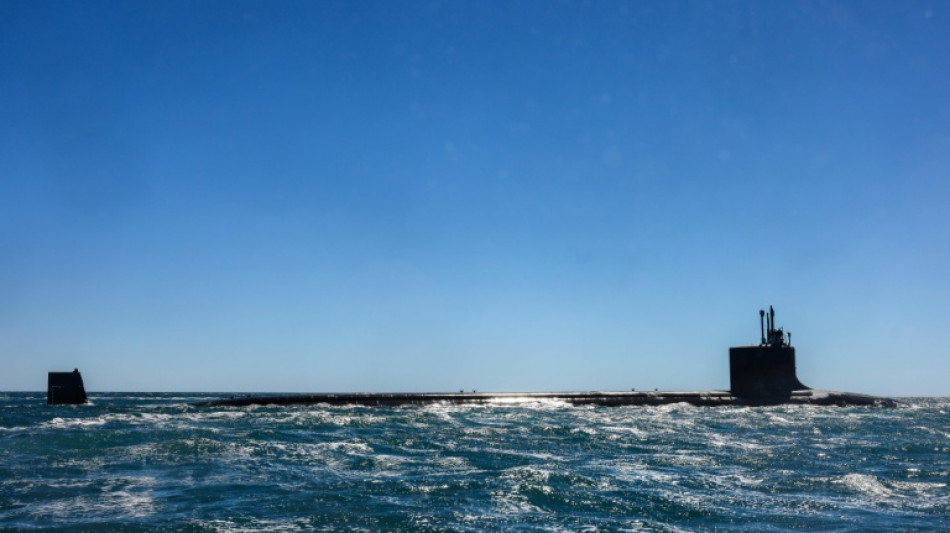
-
 Czechs name veteran coach Koubek for World Cup play-offs
Czechs name veteran coach Koubek for World Cup play-offs
-
PSG penalty hero Safonov out until next year with broken hand

-
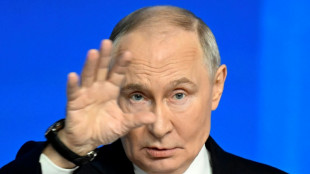 Putin says ball in court of Russia's opponents in Ukraine talks
Putin says ball in court of Russia's opponents in Ukraine talks
-
Czech Zabystran upsets Odermatt to claim Val Gardena super-G

-
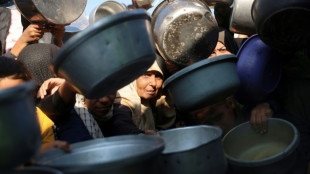 NGOs fear 'catastrophic impact' of new Israel registration rules
NGOs fear 'catastrophic impact' of new Israel registration rules
-
US suspends green card lottery after MIT professor, Brown University killings

-
 Arsenal in the 'right place' as Arteta marks six years at club
Arsenal in the 'right place' as Arteta marks six years at club
-
Sudan's El-Fasher under the RSF, destroyed and 'full of bodies'

-
 From farms to court, climate-hit communities take on big polluters
From farms to court, climate-hit communities take on big polluters
-
Liverpool have 'moved on' from Salah furore, says upbeat Slot

-
 Norway crown princess likely to undergo lung transplant
Norway crown princess likely to undergo lung transplant
-
Iraq negotiates new coalition under US pressure

-
 France's budget hits snag in setback for embattled PM
France's budget hits snag in setback for embattled PM
-
Putin hails Ukraine gains, threatens more, in annual press conference

-
 US suspends green card lottery after Brown, MIT professor shootings
US suspends green card lottery after Brown, MIT professor shootings
-
Chelsea's Maresca says Man City link '100 percent' speculation

-
 Dominant Head moves into Bradman territory with fourth Adelaide ton
Dominant Head moves into Bradman territory with fourth Adelaide ton
-
Arsenal battle to stay top of Christmas charts

-
 Mexican low-cost airlines Volaris and Viva agree to merger
Mexican low-cost airlines Volaris and Viva agree to merger
-
Border casinos caught in Thailand-Cambodia crossfire

-
 Australia's Head slams unbeaten 142 to crush England's Ashes hopes
Australia's Head slams unbeaten 142 to crush England's Ashes hopes
-
Epstein files due as US confronts long-delayed reckoning
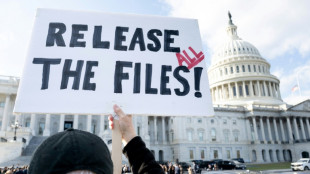
-
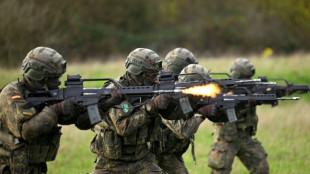 'Not our enemy': Rush to rearm sparks backlash in east Germany
'Not our enemy': Rush to rearm sparks backlash in east Germany
-
West Indies 110-0, trail by 465, after Conway's epic 227 for New Zealand
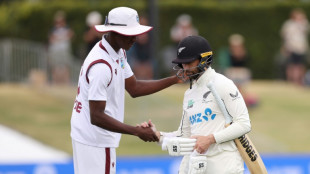
-
 Arsonists target Bangladesh newspapers after student leader's death
Arsonists target Bangladesh newspapers after student leader's death
-
Volatile Oracle shares a proxy for Wall Street's AI jitters

-
 Tears at tribute to firefighter killed in Hong Kong blaze
Tears at tribute to firefighter killed in Hong Kong blaze
-
Seahawks edge Rams in overtime thriller to seize NFC lead

-
 Teenager Flagg leads Mavericks to upset of Pistons
Teenager Flagg leads Mavericks to upset of Pistons
-
Australia's Head fires quickfire 68 as England's Ashes hopes fade
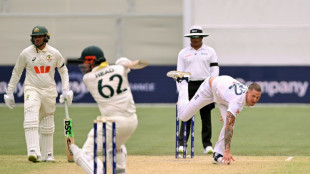
-
 Japan hikes interest rates to 30-year-high
Japan hikes interest rates to 30-year-high
-
Brazil's top court strikes down law blocking Indigenous land claims

-
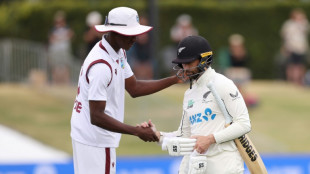 Conway falls for 227 as New Zealand pass 500 in West Indies Test
Conway falls for 227 as New Zealand pass 500 in West Indies Test
-
'We are ghosts': Britain's migrant night workers

-
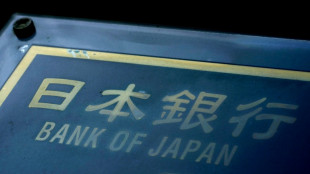 Asian markets rise as US inflation eases, Micron soothes tech fears
Asian markets rise as US inflation eases, Micron soothes tech fears
-
Giant lanterns light up Christmas in Catholic Philippines

-
 TikTok: key things to know
TikTok: key things to know
-
Putin, emboldened by Ukraine gains, to hold annual presser

-
 Deportation fears spur US migrants to entrust guardianship of their children
Deportation fears spur US migrants to entrust guardianship of their children
-
Upstart gangsters shake Japan's yakuza

-
 Trump signs $900 bn defense policy bill into law
Trump signs $900 bn defense policy bill into law
-
Stokes's 83 gives England hope as Australia lead by 102 in 3rd Test

-
 Go long: the rise and rise of the NFL field goal
Go long: the rise and rise of the NFL field goal
-
Australia announces gun buyback, day of 'reflection' after Bondi shooting

-
 New Zealand Cricket chief quits after split over new T20 league
New Zealand Cricket chief quits after split over new T20 league
-
England all out for 286, trail Australia by 85 in 3rd Test

-
 Australian announces gun buyback, day of 'reflection' after Bondi shooting
Australian announces gun buyback, day of 'reflection' after Bondi shooting
-
Joshua takes huge weight advantage into Paul fight

-
 TikTok signs joint venture deal to end US ban threat
TikTok signs joint venture deal to end US ban threat
-
Conway's glorious 200 powers New Zealand to 424-3 against West Indies


Australia must deploy 'unconventional' means to deter China, Russia: think tank
Australia must learn from past guerrilla insurgencies and adopt an "unconventional deterrence" policy in facing down threats from China, Russia and elsewhere, one of the country's leading think tanks said Wednesday.
Australia, under the tripartite AUKUS pact with the United States and the United Kingdom, will acquire at least three Virginia class submarines from the United States within 15 years, with an eye to eventually build its own.
Until then Canberra faces a major gap in its defences, warned the report by the non-partisan Australian Strategic Policy Institute (ASPI), which receives funding from Canberra's defence ministry as well as the US State Department.
"Australia's traditional reliance upon 'great and powerful friends' and extended nuclear deterrence now seems no longer assured," the authors wrote.
"Australia has options to fill today's deterrence gap: we just need to look beyond conventional paradigms," they said.
ASPI, acknowledging Australia's "inferiority" against adversaries like China, argued that past guerrilla wars like the Chechen insurgency against Russia in the 1990s showed that smaller actors could inflict heavy damage on much larger foes.
"History demonstrates that innovative concepts and asymmetric capabilities can achieve deterrent effects ahead of and during conflict," the authors wrote.
"Australian concepts of deterrence don't address the nature of competition as currently practised by China and other autocratic regimes such as Russia, North Korea and Iran," they warned.
ASPI pointed to Beijing's growing use of so-called "grey-zone" tactics -- cyberwarfare, coercion and subversion that fall short of acts of war -- as evidence that Australia needed a more dynamic and reactive policy.
It also argued Canberra could learn from former Singaporean leader Lee Kuan Yew's description of the city state as a "poisonous shrimp" -- as well as the "porcupine" strategies of Switzerland and the Baltic states.
ASPI called for the recreation of a National Security Adviser with sweeping powers and oversight over Canberra's intelligence agencies, as well as reforms of spying and defence laws to facilitate the new policy.
Australia is engaging in a rapid military build-up in a push to strengthen its defences against China, also its largest trading partner.
Canberra plans to gradually increase its defence spending to 2.4 percent of gross domestic product -- well short of US demands for 3.5 percent.
The AUKUS submarine programme alone could cost the country up to $235 billion over the next 30 years, according to Australian government forecasts, a price tag that has stoked criticism.
S.F.Warren--AMWN